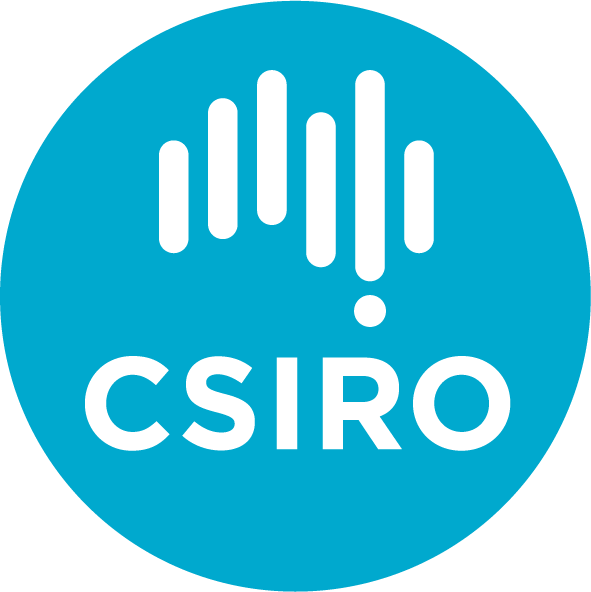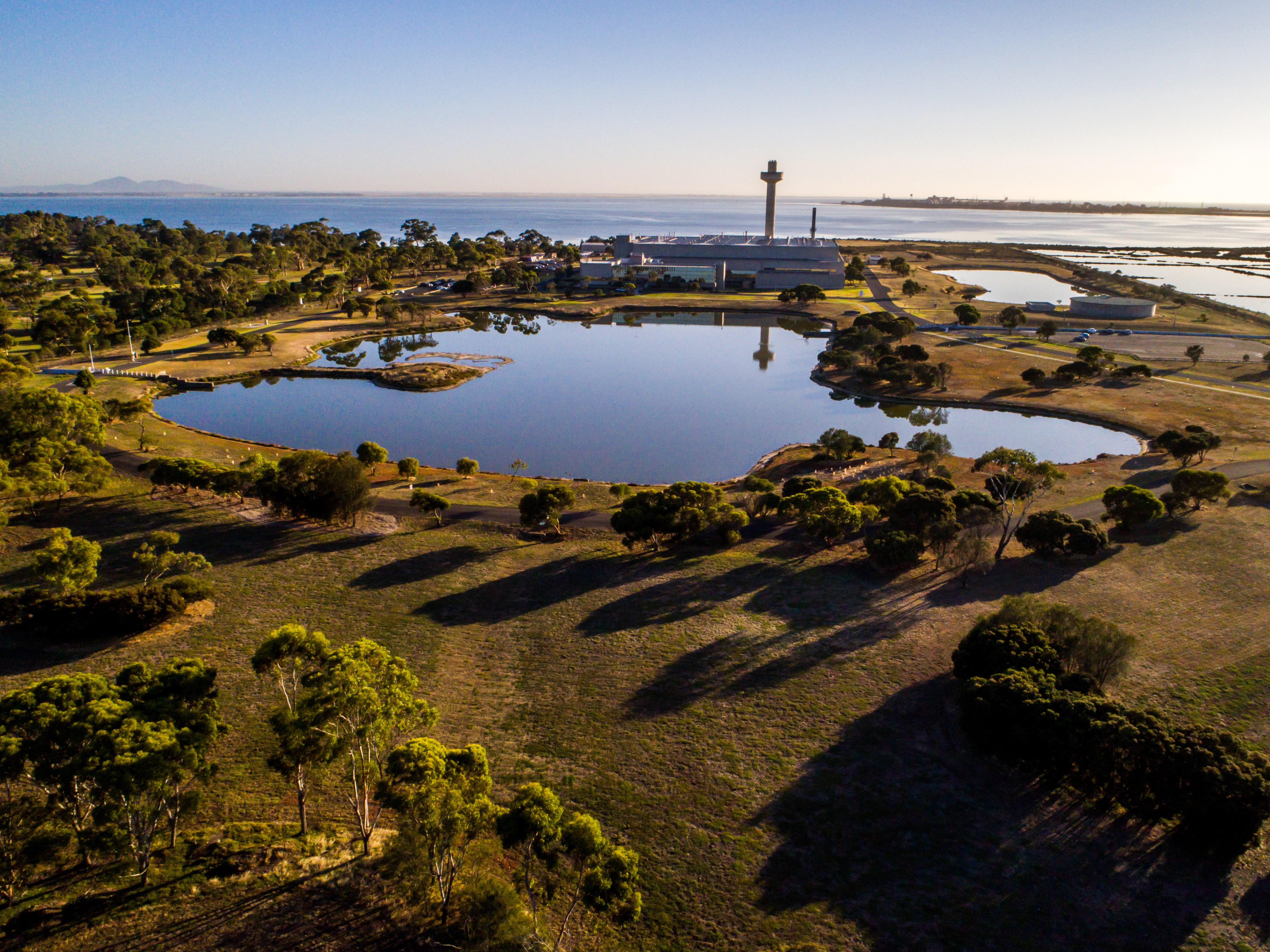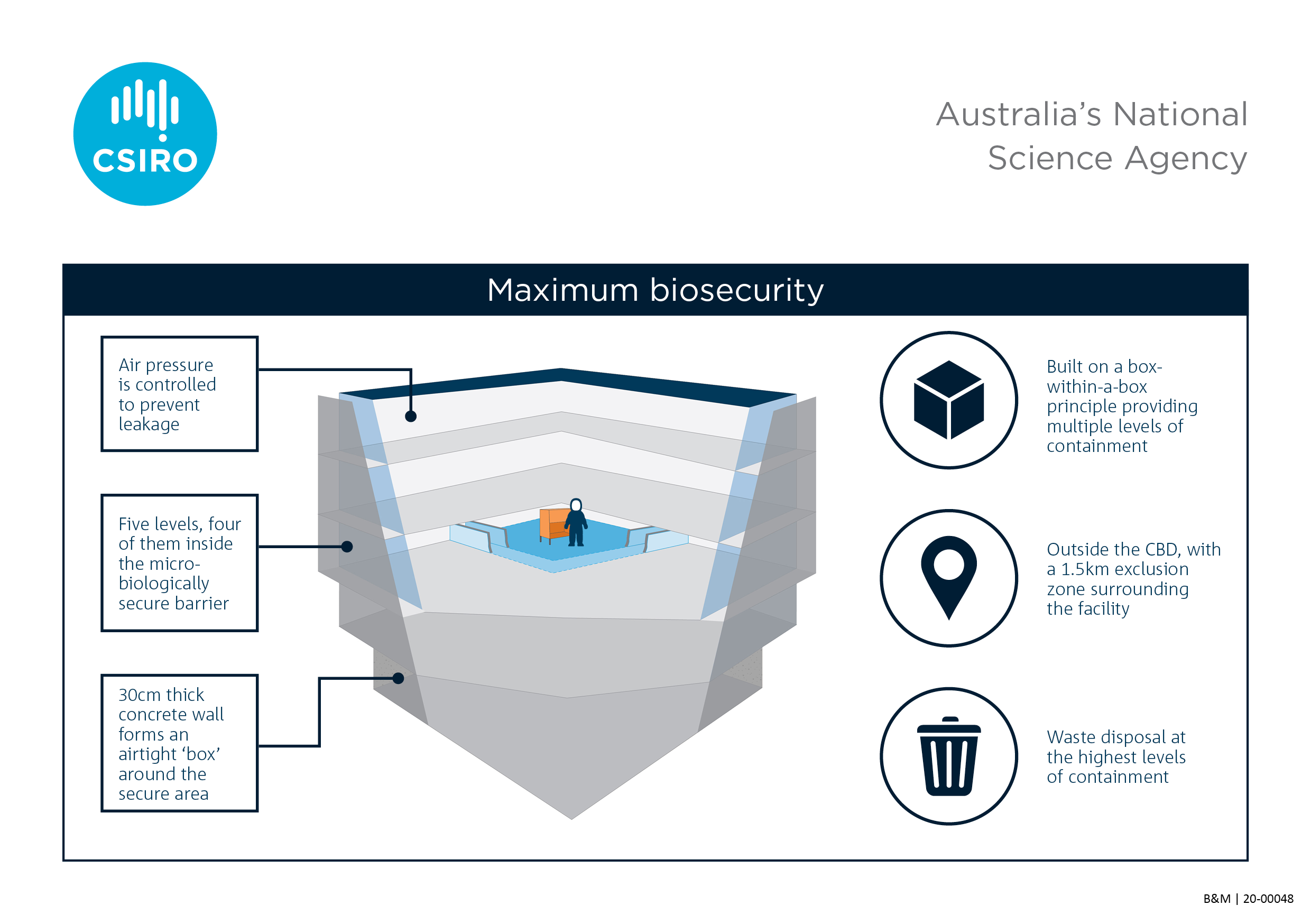4 April 2020

With the increasing threat of diseases spreading from animals to humans, including COVID-19, $220m will be directed to upgrading the high containment biosecurity research facility in Geelong, currently testing vaccines to combat the disease.
Operated by the CSIRO, Australia’s national science agency, on behalf of the Australian Government, the facility’s rapid work on COVID-19 has also been supported by a further $10 million in funding from the Government.
Formerly known as the Australian Animal Health Laboratory (AAHL), the research facility has been renamed the Australian Centre for Disease Preparedness (ACDP) to reflect its ongoing work to bring together human and animal health, disease protection and biosecurity measures, to better protect Australia to prevent, prepare for and control highly infectious diseases of animals as well as zoonotic diseases.
These diseases pass from animals to humans – such as COVID-19 and Severe Acute Respiratory Syndrome (SARS). Zoonotic diseases now account for almost 75 per cent of human infectious diseases.
CSIRO’s research, spanning that undertaken at the ACDP, CSIRO’s Health and Biosecurity research group, and CSIRO’s state-of-the-art biologics manufacturing facility in Melbourne is forming an integral part of the rapid global response to the COVID-19 outbreak.

CSIRO’s Australian Animal Health Laboratory in Geelong has been renamed the Australian Centre for Disease Preparedness (ACDP).
Dr Larry Marshall, Chief Executive of CSIRO said: “AAHL was originally created to protect Australia from animal diseases like foot and mouth, swine fever, and invasive species.”
“But the emergence of Hendra virus in Australia demonstrated that diseases do not differentiate between animals and humans, so neither will we, as we step up our preparedness and response to both in a more holistic way.
“The centre will continue to build on the expertise delivered through AAHL’s extensive biosecure laboratories combined with CSIRO’s expertise across science disciplines to predict, prevent and manage disease, and turn the breakthroughs of Australia’s medical research community into real world solutions for our greatest challenges, like pandemics.”
The ACDP facility is unique to Australia and the southern hemisphere, forming a network of high biocontainment facilities worldwide able to enable work with highly dangerous and exotic pathogens.
Infections caused by these types of microbes are frequently fatal, affecting animals and people before the development of vaccines or treatments, such as with the disease COVID-19.
“Our scientists across CSIRO are working around the clock to address the battle against COVID-19 , but it is one we are well prepared for,” Dr Marshall said.
“In 2016 we created our Health and Biosecurity business unit to work with our scientists at ACDP and we created our biological manufacturing facility.
“In partnership, and with many other research areas across CSIRO, we are tackling national and international health and biosecurity challenges together, so we can better protect the health of our people, environment, agriculture and industries, and our way of life.”
Opened in 1985, the ACDP is the only facility in Australia and the southern hemisphere capable of and licensed to carry out diagnosis and research on a range of such dangerous exotic pathogens.
CSIRO, with the ACDP at its core, has been at the forefront of work to combat viruses before. CSIRO developed the world’s first effective flu treatment and a vaccine for the Hendra virus and, in collaboration with research partners, identified bats as the natural reservoir of Severe Acute Respiratory Syndrome (SARS)-like coronaviruses.
Professor Trevor Drew OBE, Director of the ACDP said: “The activity being undertaken by CSIRO at the ACDP is tripartite, reflecting a multisectoral, one-health approach to disease preparedness across the three sectors of humans, animals and the environment which they share.”
“CSIRO is fully equipped and well prepared to deliver this capability on behalf of the nation, through its specialist facilities, its expert knowledge-base and its deep collaborative networks extending from academia to industry.
“The CSIRO COVID-19 work is an example of the criticality of a facility like ACDP. In providing a pipeline for rapid validation of a vaccine against this novel virus, we are carefully balancing operating at speed in response to a global public health emergency, we bridge the gap between academia and industry, in delivering the impactful and innovative science, for which CSIRO is renowned,” Professor Drew said.

Read the full media release here.



